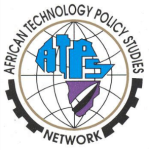[rockthemes_specialgridblock avoid_sidebar=”before” skip_sg=”true”]
About IP
Strengthening National IP Policy and legal framework in Eastern and Southern Africa: Traditional Knowledge (TK) Access and Benefit Sharing (ABS) and Effective IP Systems
BACKGROUND
A major persuasion against classical Intellectual Property Rights (IPR) regimes is that they are based on Western paradigm of property ownership and are therefore alien and impractical in cultural historical and institutional context of most developing countries – more particularly to the traditional and indigenous communities within the developing countries. Based on the needs assessment by BTA in 2002, most countries in Eastern and Southern Africa are willing to take the road that leads to an effective sui generis system with intent to integrate protection of their traditional knowledge and associated innovations in agriculture environment and health. Furthermore, to address outstanding equity issues relating to access, utilization and sharing of benefits arising from exploitation of traditional knowledge and local genetic resources.
There are many international agreements such as TRIPS, WIPO, CBD. Inter-governmental committee on Intellectual Property and Genetic resources (IGC), International Treaty on Plant Genetic Resources Food and Agriculture (IT-PGRFA) and others. However, there is lack of policy coherence in translating the agreements at National levels. The challenge here is to match the agreements to local national issues such as national food security, poverty alleviation, economic development, biodiversity and health.
RATIONALE of the program
- The current IP regimes do not recognize TK and collective ownership by communities.
- There is complexity in the current regimes and inadequate awareness.
- There is unavailability of TK documentation for patent examiners.
- Costs of current regimes are prohibitive.
- There is lack of policy coherence in translating the International agreements at national levels.
OBJECTIVES
- The goal of the IPR programme is to improve policy and legal framework development for TK ABS and effective IP systems in Eastern and Southern Africa.
- The purpose is to promote stakeholder participation in policy and legal framework development for TK ABS and effective IP systems.
- Specific objectives:
- To enhance knowledge sharing and collaboration by establishing both a regional and national IP networks.
- To generate disseminate and maintain an interactive data base and body of knowledge on the IP policy environment.
- To promote awareness on TK, ABS and effective IP Systems at the grassroots levels to encourage the integration of their concerns to national IP policy making process.
PROJECT ACTIVITIES
Objective (i)
- Establishment of the regional steering committees and network in IPR (R)
- Establishment of the national steering committee and network in IP (N)
Objective (ii)
- Establishment of current status of existing IP, gaps that are existing, incoherencies with the international treaties (R)
- Inventorisation of key stakeholders in IP (TK, ABS and effective IP) (N).
- Development of both successful and unsuccessful case studies in areas of TK and ABS (N).
- Communication strategy for the program detailing the necessary publications websites and other strategies for the dissemination of the information (R & N) (This includes policy briefs, Newsletter booklets etc).
Objective (iii)
- Creation of awareness through capacity building at various Institutions identified as stakeholders and training of TOTs (R & N).
- Creation of awareness at the grassroots’ levels by TOTs from the Institutions that were trained (N)
Other Activities
- Regional conference
- Regional Round tables for policy makers
- National Round tables for policy makers
- Network activities with connectivity to programme website.
Countries to implement the programme:
Ethiopia, Kenya, Tanzania, Uganda, Swaziland and Mozambique
Time Frame : 4 Years

